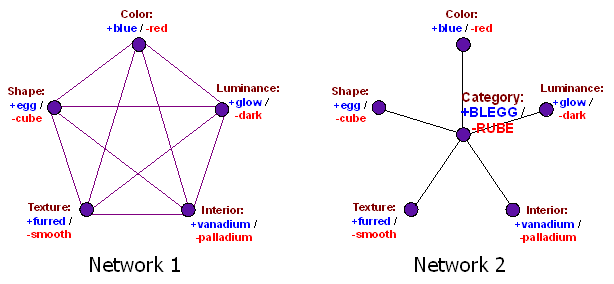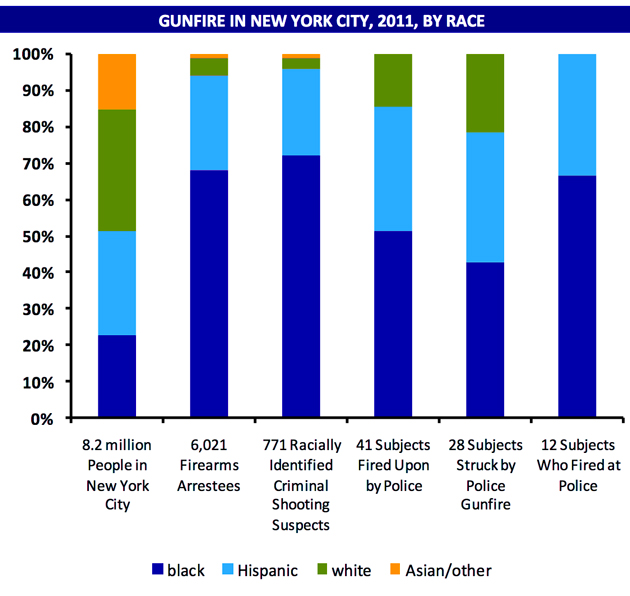I.
“Silliest internet atheist argument” is a hotly contested title, but I have a special place in my heart for the people who occasionally try to prove Biblical fallibility by pointing out whales are not a type of fish.
(this is going to end up being a metaphor for something. Yup, we’re back to Whale Metaphor Blogging.)
The argument goes like this. Jonah got swallowed by a whale. But the Bible says Jonah got swallowed by a big fish. So the Bible seems to think whales are just big fish. Therefore the Bible is fallible. Therefore, the Bible was not written by God.
The first problem here is that “whale” is just our own modern interpretation of the Bible. For all we know, Jonah was swallowed by a really really really big herring.
The second problem is that if the ancient Hebrews want to call whales a kind of fish, let them call whales a kind of fish.
I’m not making the weak and boring claim that since they’d never discovered genetics they don’t know better. I am making the much stronger claim that, even if the ancient Hebrews had taken enough of a break from murdering Philistines and building tabernacles to sequence the genomes of all knownspecies of aquatic animals, there’s nothing whatsoever wrong, false, or incorrect with them calling a whale a fish.
Now, there’s something wrong with saying “whales are phylogenetically just as closely related to bass, herring, and salmon as these three are related to each other.” What’s wrong with the statement is that it’s false. But saying “whales are a kind of fish” isn’t.
Suppose you travel back in time to ancient Israel and try to explain to King Solomon that whales are a kind of mammal and not a kind of fish.
Your translator isn’t very good, so you pause to explain “fish” and “mammal” to Solomon. You tell him that fish is “the sort of thing herring, bass, and salmon are” and mammal is “the sort of thing cows, sheep, and pigs are”. Solomon tells you that your word “fish” is Hebrew dag and your word “mammal” is Hebrew behemah.
So you try again and say that a whale is a behemah, not a dag. Solomon laughs at you and says you’re an idiot.
You explain that you’re not an idiot, that in fact all kinds of animals have things called genes, and the genes of a whale are much closer to those of the other behemah than those of the dag.
Solomon says he’s never heard of these gene things before, and that maybe genetics is involved in your weird foreign words “fish” and “mammal”, but dag are just finned creatures that swim in the sea, and behemah are just legged creatures that walk on the Earth.
(like the kelev and the parah and the gavagai)
You try to explain that no, Solomon is wrong, dag are actually defined not by their swimming-in-sea-with-fins-ness, but by their genes.
Solomon says you didn’t even know the word dag ten minutes ago, and now suddenly you think you know what it means better than he does, who has been using it his entire life? Who died and made you an expert on Biblical Hebrew?
You try to explain that whales actually have tiny little hairs, too small to even see, just as cows and sheep and pigs have hair.
Solomon says oh God, you are so annoying, who the hell cares whether whales have tiny little hairs or not. In fact, the only thing Solomon cares about is whether responsibilities for his kingdom’s production of blubber and whale oil should go under his Ministry of Dag or Ministry of Behemah. The Ministry of Dag is based on the coast and has a lot of people who work on ships. The Ministry of Behemah has a strong presence inland and lots of of people who hunt on horseback. So please (he continues) keep going about how whales have little tiny hairs.
It’s easy to see that Solomon has a point, and that if he wants to define behemah as four-legged-land-dwellers that’s his right, and no better or worse than your definition of “creatures in a certain part of the phylogenetic tree”. Indeed, it might even be that if you spent ten years teaching Solomon all about the theory of genetics and evolution (which would be hilarious – think how annoyed the creationists would get) he might still say “That’s very interesting, and I can see why we need a word to describe creatures closely related along the phylogenetic tree, but make up your own word, because behemah already means ‘four-legged-land-dweller’.”
Now imagine that instead of talking to King Solomon, you’re talking to that guy from Duck Dynasty with the really crazy beard (I realize that may describe more than one person), who stands in for all uneducated rednecks in the same way King Solomon stands in for all Biblical Hebrews.
“Ah course a whale is a feesh, ya moron” he says in his heavy Southern accent.
“No it isn’t,” you say. “A fish is a creature phylogenetically related to various other fish, and with certain defining anatomical features. It says so right here in this biology textbook.”
“Well,” Crazy Beard Guy tells you, “Ah reckon that might be what a fish is, but a feesh is some’in that swims in the orshun.”
With a sinking feeling in your stomach, you spend ten years turning Crazy Beard Guy into a world expert on phylogenetics and evolutionary theory. Although the Duck Dynasty show becomes much more interesting, you fail to budge him a bit on the meaning of “feesh”.
It’s easy to see here that “fish” and “feesh” can be different just as “fish” and “dag” can be different.
You can point out how many important professors of icthyology in fancy suits use your definition, and how only a couple of people with really weird facial hair use his. But now you’re making a status argument, not a factual argument. Your argument is “conform to the way all the cool people use the word ‘fish'”, not “a whale is really and truly not a fish”.
There are facts of the matter on each individual point – whether a whale has fins, whether a whale lives in the ocean, whether a whale has tiny hairs, et cetera. But there is no fact of the matter on whether a whale is a fish. The argument is entirely semantic.
So this is the second reason why this particular objection to the Bible is silly. If God wants to call a whale a big fish, stop telling God what to do.
(also, bats)
II.
When terms are not defined directly by God, we need our own methods of dividing them into categories.
The essay “How An Algorithm Feels From The Inside” is a gift that keeps on giving. You can get a reputation as a daring and original thinker just by copy-pasting it at different arguments with a couple of appropriate words substituted for one another, mad-libs like. It is the solution to something like 25% of extent philosophical problems.
It starts with a discussion of whether or not Pluto is a planet. Planets tend to share many characteristics in common. For example, they are large, round, have normal shaped orbits lined up with the plane of the ecliptic, have cleared out a certain area of space, and are at least kind of close to the Sun as opposed to way out in the Oort Cloud.
One could imagine a brain that thought about these characteristics like this:
One could imagine this model telling you everything you need to know. If an object is larger, it’s more likely to be round and in cis-Neptunian space. If an object has failed to clear its orbit of debris, it’s more likely to have a skewed orbit relative to the plane of the ecliptic. We could give each of these relationships Bayesian weights and say things like large objects have a 32% chance of being in cis-Neptunian space and small objects an 86% chance. Or whatever.
But this model has some big problems. For one thing, if you inscribe it in blood, you accidentally summon the Devil. But second, it’s computationally very complicated. Each attribute affects each other attribute which affects it in turn and so on in an infinite cycle, so that its behavior tends to be chaotic and unpredictable.
What the human brain actually seems to do is to sweep all common correlations into one big category in the middle, thus dividing possibility-space into large round normal-orbit solitary inner objects, and small irregular skewed-orbit crowded outer objects. It calls the first category “planets” and the second category “planetoids”.
![]()
Obligatory Less Wrong picture
You can then sweep minor irregularities under the rug. Neptune is pretty far from the sun, but since it’s large, round, normal-orbit, and solitary, we know which way the evidence is leaning.
When an object satisfies about half the criteria for planet and half the criteria for planetoid, then it’s awkward. Pluto is the classic example. It’s relatively large, round, skewed orbit, solitary…ish? and outer-ish. What do you do?
The practical answer is you convene some very expensive meeting of prestigious astronomers and come to some official decision which everyone agrees to follow so they’re all on the same page.
But the ideal answer is you say “Huh, the assumption encoded in the word ‘planet’ that the five red criteria always went together and the five blue criteria always went together doesn’t hold. Whatever.”
Then you divide the solar system into three types of objects: planets, planetoids, and dammit-our-categorization-scheme-wasn’t-as-good-as-we-thought.
(psychiatry, whose philosophy of categorization is light years ahead of a lot of the rest of the world, conveniently abbreviates this latter category as “NOS”)
The situation with whales and fish is properly understood in the same context. Fish and mammals differ on a lot of axes. Fish generally live in the water, breathe through gills, have tails and fins, possess a certain hydrodynamic shape, lay eggs, and are in a certain part of the phylogenetic tree. Mammals generally live on land, breathe through lungs, have legs, give live birth, and are in another part of the phylogenetic tree. Most fish conform to all of the fish desiderata, and most mammals conform to all of the mammal desiderata, so there’s no question of how to categorize them. Occasionally you get something weird (a platypus, a lungfish, or a whale) and it’s a judgment call which you have to decide by fiat. In our case, that fiat is “use genetics and ignore all other characteristics” but some other language, culture, or scientific community might make a different fiat, and then the borders between their categories would look a little bit different.
III.
Since I shifted to a borders metaphor, let’s follow that and see where it goes.
Imagine that Israel and Palestine agree to a two-state solution with the final boundary to be drawn by the United Nations. You’re the head of the United Nations committee involved, so you get out a map and a pencil. Both sides have sworn by their respective gods to follow whatever you determine.
Your job is not to draw “the correct border”. There is no one correct border between Israel and Palestine. There are a couple of very strong candidates (for example, the pre-1967 line of control), but both countries have suggested deviations from that (most people think an actual solution would involve Palestine giving up some territory that has since been thoroughly settled by Israel in exchange for some territory within Israel proper, or perhaps for a continuous “land bridge” between the West Bank and Gaza). Even if you wanted to use the pre-1967 line as a starting point, there would still be a lot of work to do deciding what land swaps should and shouldn’t be made.
Instead you’d be making a series of trade-offs. Giving all of Jerusalem to the Israelis would make them very happy but anger Palestine. Creating a contiguous corridor between Gaza and the West Bank makes some sense, but then you’d be cutting off Eilat from the rest of Israel. Giving all of the Israeli settlements in the West Bank back to Palestine would satisfy a certain conception of property rights, but also leave a lot of Jews homeless.
There are also much stupider decisions you could make. You could give Tel Aviv to Palestine. You could make the Palestinian state a perfect circle five miles in radius centered on Rishon LeZion. You could just split the territory in half with a straight line, and give Israel the north and Palestine the south. All of these things would be really dumb.
But, crucially, they would not be false. They would not be factually incorrect. They would just be failing to achieve pretty much any of the goals that we would expect a person solving land disputes in the Middle East to have. You can think of alternative arrangements in which these wouldn’t be dumb. For example, if you’re a despot, and you want to make it very clear to both the Israelis and Palestinians that their opinions don’t matter and they should stop bothering you with annoying requests for arbitration, maybe splitting the country in half north-south is the way to go.
This is now unexpectedly a geography blog again.
The border between Turkey and Syria follows a mostly straight-ish line near-ish the 36th parallel, except that about twenty miles south of the border Turkey controls a couple of square meters in the middle of a Syrian village. This is the tomb of the ancestor of the Ottoman Turks, and Turkey’s border agreement with Syria stipulates that it will remain part of Turkey forever. And the Turks take this very seriously; they maintain a platoon of special forces there and have recently been threatening war against Syria if their “territory” gets “invaded” in the current conflict.
![]()
Pictured: Turkey (inside fence), Syria (outside)
The border between Bangladesh and India is complicated at the best of times, but it becomes absolutely ridiculous in a place called Cooch-Behar, which I guess is as good a name as any for a place full of ridiculous things. In at least one spot there is an ‘island’ of Indian territory within a larger island of Bangladeshi territory within a larger island of Indian territory within Bangladesh. According to mentalfloss.com:
So why’d the border get drawn like that? It can all be traced back to power struggles between local kings hundreds of years ago, who would try to claim pockets of land inside each other’s territories as a way to leverage political power. When Bangladesh became independent from India in 1947 (as East Pakistan until 1971), all those separate pockets of land were divvied up. Hence the polka-dotted mess.
![]()
Namibia is a very weird-looking country with a very thin three-hundred-mile-long panhandle (eg about twice as long as Oklahoma’s). Apparently during the Scramble For Africa, the Germans who colonized Namibia really wanted access to the Zambezi River so they could reach the Indian Ocean and trade their colonial resources. They kept pestering the British who colonized Botswana until the Brits finally agreed to give up a tiny but very long strip of territory ending at the riverbank. This turned out to be not so useful, as just after Namibia’s Zambezi access sits Victoria Falls, the largest waterfall in the world – meaning that any Germans who tried to traverse the Zambezi to reach the Indian Ocean would last a matter of minutes before suddenly encountering a four hundred foot drop and falling to pretty much certain death. The moral of the story is not to pester the British Empire too much, especially if they’ve explored Africa and you haven’t.
![]()
But the other moral of the story is that borders are weird. Although we think of borders as nice straight lines that separate people of different cultures, they can form giant panhandles, distant islands, and enclaves-within-enclaves-within-enclaves. They can depart from their usual course to pay honor to national founders, to preserve records of ancient conquests, or to connect to trade routes.
Hume’s ethics restrict “bad” to an instrumental criticism – you can condemn something as a bad way to achieve a certain goal, but not as morally bad independent of what the goal is. In the same way, borders can be bad at fulfilling your goals in drawing them, but not bad in an absolute sense or factually incorrect. Namibia’s border is bad from the perspective of Germans who want access to the Indian Ocean. But it’s excellent from the perspective of Englishmen who want to watch Germans plummet into the Lower Zambezi and get eaten by hippos.
Breaking out of the metaphor, the same is true of conceptual boundaries. You may draw the boundaries of the category “fish” any way you want. A category “fish” containing herring, dragonflies, and asteroids is going to be stupid, but only in the same sense that a Palestinian state centered around Tel Aviv would be stupid – it fails to fulfill any conceivable goals of the person designing it. Categories “fish” that do or don’t include whales may be appropriate for different people’s purposes, the same way Palestinians might argue about whether the borders of their state should be optimized for military defensibility or for religious/cultural significance.
Statements like “the Zambezi River is full of angry hippos” are brute facts. Statements like “the Zambezi River is the territory of Namibia” are negotiable.
In the same way, statements like “whales have little hairs” are brute facts. Statements like “whales are not a kind of fish” are negotiable.
So it’s important to keep these two sorts of statements separate, and remember that in no case can an agreed-upon set of borders or a category boundary be factually incorrect.
IV.
I usually avoid arguing LGBT issues on here, not because I don’t have strong opinions about them but because I assume so many of my readers already agree with me that it would be a waste of time. I’m pretty sure I’m right about this – on the recent survey, readers of this blog who were asked to rate their opinion of gay marriage from 1 (strongly against) to 5 (strongly in favor) gave an average rating of 4.32.
Nevertheless, I’ve seen enough anti-transgender comments recently that the issue might be worth a look.
In particular, I’ve seen one anti-transgender argument around that I take very seriously. The argument goes: we are rationalists. Our entire shtick is trying to believe what’s actually true, not on what we wish were true, or what our culture tells us is true, or what it’s popular to say is true. If a man thinks he’s a woman, then we might (empathetically) wish he were a woman, other people might demand we call him a woman, and we might be much more popular if we say he’s a woman. But if we’re going to be rationalists who focus on believing what’s actually true, then we’ve got to call him a man and take the consequences.
Thus Abraham Lincoln’s famous riddle: “If you call a tail a leg, how many legs does a dog have?” And the answer: “Four – because a tail isn’t a leg regardless of what you call it.”
(if John Wilkes Booth had to suffer through that riddle, then I don’t blame him)
I take this argument very seriously, because sticking to the truth really is important. But having taken it seriously, I think it’s seriously wrong.
An alternative categorization system is not an error, and borders are not objectively true or false.
Just as we can come up with criteria for a definition of “planet”, we can come up with a definition of “man”. Absolutely typical men have Y chromosomes, have male genitalia, appreciate manly things like sports and lumberjackery, are romantically attracted to women, personally identify as male, wear male clothing like blue jeans, sing baritone in the opera, et cetera.
Some people satisfy some criteria of manhood and not others, in much the same way that Pluto satisfies only some criteria of planethood and whales satisfy only some criteria of mammalhood. For example, gay men might date other men and behave in effeminate ways. People with congenital androgen insensitivity syndrome might have female bodies, female external genitalia, and have been raised female their entire life, but when you look into their cells they have Y chromosomes.
Biologists defined by fiat that in cases of ambiguous animal grouping like whales, phylogenetics will be the tiebreaker. This was useful to resolve ambiguity, and it’s worth sticking to as a Schelling point so everyone’s using their words the same way, but it’s kind of arbitrary and mostly based on biologists caring a lot about phylogenetics. If we let King Solomon make the decision, he might decide by fiat that whether animals lived in land or water would be the tiebreaker, since he’s most interested in whether the animal is hunted on horseback or by boat.
Likewise, astronomers decided by fiat that something would be a planet if and only if meets the three criteria of orbiting, round, and orbit-clearing. But here we have a pretty neat window into how these kinds of decisions take place – you can read the history of the International Astronomical Union meeting where they settled on the definition and learn about all the alternative proposals that were floated and rejected and which particular politics resulted in the present criteria being selected among all the different possibilities. Here it is obvious that the decision was by fiat.
Without the input of any prestigious astronomers at all, most people seem to assume that the ultimate tiebreaker in man vs. woman questions is presence of a Y chromosome. I’m not sure this is a very principled decision, because I expect most people would classify congenital androgen insensitivity patients (XY people whose bodies are insensitive to the hormone that makes them look male, and so end up looking 100% female their entire lives and often not even knowing they have the condition) as women.
The project of the transgender movement is to propose a switch from using chromosomes as a tiebreaker to using self-identification as a tiebreaker.
(This isn’t actually the whole story – some of the more sophisticated people want to split “sex” and “gender”, so that people who want to talk about what chromosomes they’ve got have a categorization system to do that with, and a few people even want to split “chromosomal sex” and “anatomical sex” and “gender” and goodness knows what else – and I support all of these as very important examples of the virtue of precision – but to a first approximation, they want to define gender as self-identification)
This is not something that can be “true” or “false”. It’s a boundary-redrawing project. It can make for some boundaries that look a little bit weird – like a small percent of men being able to get pregnant – but as far as weird boundaries go that’s probably not as bad as having a tiny exclave of Turkish territory in the middle of a Syrian village.
(Ozy tells me this is sort of what queer theory is getting at, but in a horrible unreadable postmodernist way. They assure me you’re better off just reading the darned Sequences.)
You draw category boundaries in specific ways to capture tradeoffs you care about. If you care about the sanctity of the tomb of your country’s founder, sometimes it’s worth having a slightly weird-looking boundary in order to protect and honor it. And if you care about…
I’ve lived with a transgender person for six months, so I probably should have written this earlier. But I’m writing it now because I just finished accepting a transgender man to the mental hospital. He alternates between trying to kill himself and trying to cut off various parts of his body because he’s so distressed that he is biologically female. We’ve connected him with some endocrinologists who can hopefully get him started on male hormones, after which maybe he’ll stop doing that and hopefully be able to lead a normal life.
If I’m willing to accept an unexpected chunk of Turkey deep inside Syrian territory to honor some random dead guy – and I better, or else a platoon of Turkish special forces will want to have a word with me – then I ought to accept an unexpected man or two deep inside the conceptual boundaries of what would normally be considered female if it’ll save someone’s life. There’s no rule of rationality saying that I shouldn’t, and there are plenty of rules of human decency saying that I should.
V.
I’ve made this argument before and gotten a reply something like this:
“Transgender is a psychiatric disorder. When people have psychiatric disorders, certainly it’s right to sympathize and feel sorry for them and want to help them. But the way we try to help them is by treating their disorder, not by indulging them in their delusion.”
I think these people expect me to argue that transgender “isn’t really a psychiatric disorder” or something. But “psychiatric disorder” is just another category boundary dispute, and one that I’ve already written enough about elsewhere. At this point, I don’t care enough to say much more than “If it’s a psychiatric disorder, then attempts to help transgender people get covered by health insurance, and most of the ones I know seem to want that, so sure, gender dysphoria is a psychiatric disorder.”
And then I think of the Hair Dryer Incident.
The Hair Dryer Incident was probably the biggest dispute I’ve seen in the mental hospital where I work. Most of the time all the psychiatrists get along and have pretty much the same opinion about important things, but people were at each other’s throats about the Hair Dryer Incident.
Basically, this one obsessive compulsive woman would drive to work every morning and worry she had left the hair dryer on and it was going to burn down her house. So she’d drive back home to check that the hair dryer was off, then drive back to work, then worry that maybe she hadn’t really checked well enough, then drive back, and so on ten or twenty times a day.
It’s a pretty typical case of obsessive-compulsive disorder, but it was really interfering with her life. She worked some high-powered job – I think a lawyer – and she was constantly late to everything because of this driving back and forth, to the point where her career was in a downspin and she thought she would have to quit and go on disability. She wasn’t able to go out with friends, she wasn’t even able to go to restaurants because she would keep fretting she left the hair dryer on at home and have to rush back. She’d seen countless psychiatrists, psychologists, and counselors, she’d done all sorts of therapy, she’d taken every medication in the book, and none of them had helped.
So she came to my hospital and was seen by a colleague of mine, who told her “Hey, have you thought about just bringing the hair dryer with you?”
And it worked.
She would be driving to work in the morning, and she’d start worrying she’d left the hair dryer on and it was going to burn down her house, and so she’d look at the seat next to her, and there would be the hair dryer, right there. And she only had the one hair dryer, which was now accounted for. So she would let out a sigh of relief and keep driving to work.
And approximately half the psychiatrists at my hospital thought this was absolutely scandalous, and This Is Not How One Treats Obsessive Compulsive Disorder, and what if it got out to the broader psychiatric community that instead of giving all of these high-tech medications and sophisticated therapies we were just telling people to put their hair dryers on the front seat of their car?
I, on the other hand, thought it was the best fricking story I had ever heard and the guy deserved a medal. Here’s someone who was totally untreatable by the normal methods, with a debilitating condition, and a drop-dead simple intervention that nobody else had thought of gave her her life back. If one day I open up my own psychiatric practice, I am half-seriously considering using a picture of a hair dryer as the logo, just to let everyone know where I stand on this issue.
Miyamoto Musashi is quoted as saying:
The primary thing when you take a sword in your hands is your intention to cut the enemy, whatever the means. Whenever you parry, hit, spring, strike or touch the enemy’s cutting sword, you must cut the enemy in the same movement. It is essential to attain this. If you think only of hitting, springing, striking or touching the enemy, you will not be able actually to cut him.
Likewise, the primary thing in psychiatry is to help the patient, whatever the means. Someone can concern-troll that the hair dryer technique leaves something to be desired in that it might have prevented the patient from seeking a more thorough cure that would prevent her from having to bring the hair dryer with her. But compared to the alternative of “nothing else works” it seems clearly superior.
And that’s the position from which I think a psychiatrist should approach gender dysphoria, too.
Imagine if we could give depressed people a much higher quality of life merely by giving them cheap natural hormones. I don’t think there’s a psychiatrist in the world who wouldn’t celebrate that as one of the biggest mental health advances in a generation. Imagine if we could ameliorate schizophrenia with one safe simple surgery, just snip snip you’re not schizophrenic anymore. Pretty sure that would win all of the Nobel prizes. Imagine that we could make a serious dent in bipolar disorder just by calling people different pronouns. I’m pretty sure the entire mental health field would join together in bludgeoning anybody who refused to do that. We would bludgeon them over the head with big books about the side effects of lithium.
Really, are you sure you want your opposition to accepting transgender people to be “I think it’s a mental disorder”?
VI.
Some people can’t leave well enough alone, and continue to push the mental disorder angle. For example:
![]()
There are a lot of things I could say here.
I could point out that trans-Napoleonism seem to be mysteriously less common than transgender.
I could relate this mysterious difference to the various heavily researched apparent biological correlates of transgender, including unusual variants of the androgen receptor, birth-sex-discordant sizes of various brain regions, birth-sex-discordant responses to various pheromones, high rates of something seemingly like body integrity identity disorder, and of course our old friend altered digit ratios. If our hypothetical trans-Napoleon came out of the womb wearing a French military uniform and clutching a list of 19th century Grand Armee positions in his cute little baby hands, I think I’d take him more seriously.
I could argue that questions about gender are questions about category boundaries, whereas questions about Napoleon – absent some kind of philosophical legwork that I would very much like to read – are questions of fact.
I could point out that if the extent of somebody’s trans-Napoleonness was wanting to wear a bicorne hat, and he was going to be suicidal his entire life if he couldn’t but pretty happy if I could, let him wear the damn hat.
I could just link people to other sites’ pretty good objections to the same argument.
But I think what I actually want to say is that there was once a time somebody tried pretty much exactly this, silly hat and all. Society shrugged and played along, he led a rich and fulfilling life, his grateful Imperial subjects came to love him, and it’s one of the most heartwarming episodes in the history of one of my favorite places in the world.
Sometimes when you make a little effort to be nice to people, even people you might think are weird, really good things happen.


 on Catholic prayer for her, even though it’s probably not quite targeted at the SSC demographic. Its
on Catholic prayer for her, even though it’s probably not quite targeted at the SSC demographic. Its 

 and found myself convinced by its basic thesis that genetics completely trumped parenting.
and found myself convinced by its basic thesis that genetics completely trumped parenting. 










 .
.
 . They begin by saying everything above is true – the system mostly avoids direct racist bias against black people – and go on to say argue quite consistently that we still have a system where (their words) “recent punishment policies have replaced the urban ghetto, Jim Crow laws, and slavery as a mechanism for maintaining white dominance over blacks in the United States”. If you want something that makes the strongest case for the justice system harming blacks, written by real criminologists who know what they’re talking about, there’s your best bet.
. They begin by saying everything above is true – the system mostly avoids direct racist bias against black people – and go on to say argue quite consistently that we still have a system where (their words) “recent punishment policies have replaced the urban ghetto, Jim Crow laws, and slavery as a mechanism for maintaining white dominance over blacks in the United States”. If you want something that makes the strongest case for the justice system harming blacks, written by real criminologists who know what they’re talking about, there’s your best bet. . Every time I try to wear a dress shirt it chokes me. The only time the collar is big enough is if I get a shirt so many sizes too big for me that the rest of it starts looking like a toga. Either I am a mutant with a uniquely high neck-to-body ratio, or I have abnormal anxiety about / sensitivity to feeling things against my neck. In either case, these little button-type things go into the shirt and make the collar bigger and solve my problem. This has made work about 50% less unpleasant, at the low cost of my dignity.
. Every time I try to wear a dress shirt it chokes me. The only time the collar is big enough is if I get a shirt so many sizes too big for me that the rest of it starts looking like a toga. Either I am a mutant with a uniquely high neck-to-body ratio, or I have abnormal anxiety about / sensitivity to feeling things against my neck. In either case, these little button-type things go into the shirt and make the collar bigger and solve my problem. This has made work about 50% less unpleasant, at the low cost of my dignity. plus
plus  for days when I’ve got to walk all around the hospital or stand by a bedside for half an hour while my team is talking to a patient. The sort of shoes that my parents would get angry about me wearing to a restaurant are apparently totally acceptable as dress shoes for work as long as they are black and shiny.
for days when I’ve got to walk all around the hospital or stand by a bedside for half an hour while my team is talking to a patient. The sort of shoes that my parents would get angry about me wearing to a restaurant are apparently totally acceptable as dress shoes for work as long as they are black and shiny. off Amazon, and so far it’s been at least as good as my previous razor (a Gillette). Now I can change to new blades twice as often and still save money.
off Amazon, and so far it’s been at least as good as my previous razor (a Gillette). Now I can change to new blades twice as often and still save money. , which have a Noise Reduction Rating of 33, about as high as you’ll find sold commercially, and are also cheap enough that you can throw them away after a night or two and comfortable enough not to bother me. When I combine them with
, which have a Noise Reduction Rating of 33, about as high as you’ll find sold commercially, and are also cheap enough that you can throw them away after a night or two and comfortable enough not to bother me. When I combine them with  I can usually get relief from most music and incidental noise, although they’re not perfect and they hurt my neck if I use them too long. This is the best combination I’ve found in years of searching, but I’m interested in other people’s discoveries.
I can usually get relief from most music and incidental noise, although they’re not perfect and they hurt my neck if I use them too long. This is the best combination I’ve found in years of searching, but I’m interested in other people’s discoveries. , classily named a “bugzooka”. When there is a big scary bug in the house, you point the bugzooka at it, suck it up into the machine’s chamber, and then release the bug outside. Or, more realistically, you make Ozy release the bug outside, because the release mechanism is much less automated than the sucking mechanism and usually it involves dismantling the machine by hand, at which point a really angry bug has an attack of opportunity to sting/bite/spray toxins at you. That maybe wasn’t the best design choice. It’s still better than most other methods of bug collection.
, classily named a “bugzooka”. When there is a big scary bug in the house, you point the bugzooka at it, suck it up into the machine’s chamber, and then release the bug outside. Or, more realistically, you make Ozy release the bug outside, because the release mechanism is much less automated than the sucking mechanism and usually it involves dismantling the machine by hand, at which point a really angry bug has an attack of opportunity to sting/bite/spray toxins at you. That maybe wasn’t the best design choice. It’s still better than most other methods of bug collection. is sort of the Optimus Prime of computers – it can transform between a regular laptop, a weirdly-shaped hard-to-use laptop, and a large awkward tablet. Its weirdly-shaped hard-to-use configuration is strangely compatible with my habit of lying prone hanging halfway off a bed while I surf the Internet on a laptop on the floor below me. So far I’ve only had two problems – a total crash that the repair shop assured me was because of software, and some finger/hand pain when I type too much on the keyboard (which I solved with a peripheral USB keyboard; I type more than any reasonable person, so this may not happen to you). Other people have reported WiFi problems, but I’ve been fine. Due to some of these issues, I’m not sure I can unreservedly recommend this, but it does have a “wow” factor and I’ve been pretty satisfied. I can much more confidently recommend
is sort of the Optimus Prime of computers – it can transform between a regular laptop, a weirdly-shaped hard-to-use laptop, and a large awkward tablet. Its weirdly-shaped hard-to-use configuration is strangely compatible with my habit of lying prone hanging halfway off a bed while I surf the Internet on a laptop on the floor below me. So far I’ve only had two problems – a total crash that the repair shop assured me was because of software, and some finger/hand pain when I type too much on the keyboard (which I solved with a peripheral USB keyboard; I type more than any reasonable person, so this may not happen to you). Other people have reported WiFi problems, but I’ve been fine. Due to some of these issues, I’m not sure I can unreservedly recommend this, but it does have a “wow” factor and I’ve been pretty satisfied. I can much more confidently recommend  , which everybody who hears seems to like and which have weathered an impressive amount of abuse without complaint.
, which everybody who hears seems to like and which have weathered an impressive amount of abuse without complaint. . For best results, use as a coffee table book, the way you would normally use some nice colorful book like Birds of North America or something. When somebody sits down at your coffee table, starts leafing through it, and asks what it is, freak out and tell them they weren’t supposed to see that. Then grab it, hastily place it in a dresser, and give them a copy of Birds of North America to leaf through.
. For best results, use as a coffee table book, the way you would normally use some nice colorful book like Birds of North America or something. When somebody sits down at your coffee table, starts leafing through it, and asks what it is, freak out and tell them they weren’t supposed to see that. Then grab it, hastily place it in a dresser, and give them a copy of Birds of North America to leaf through. is the opposite; a crime spree that gets mistaken for a tale of wonder and adventure.
is the opposite; a crime spree that gets mistaken for a tale of wonder and adventure.









